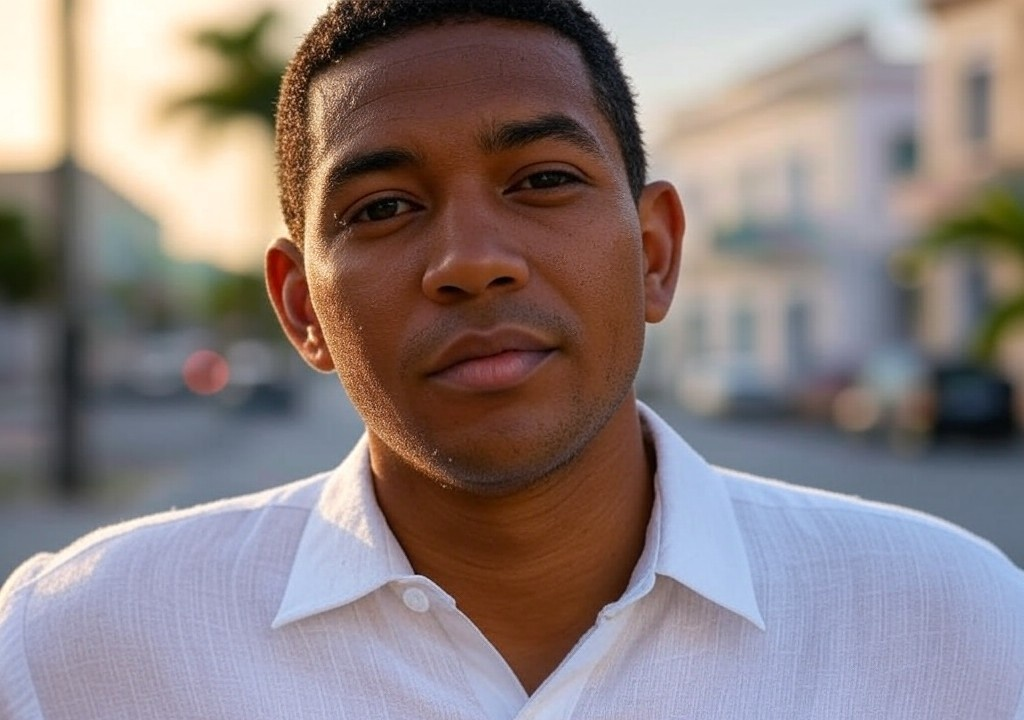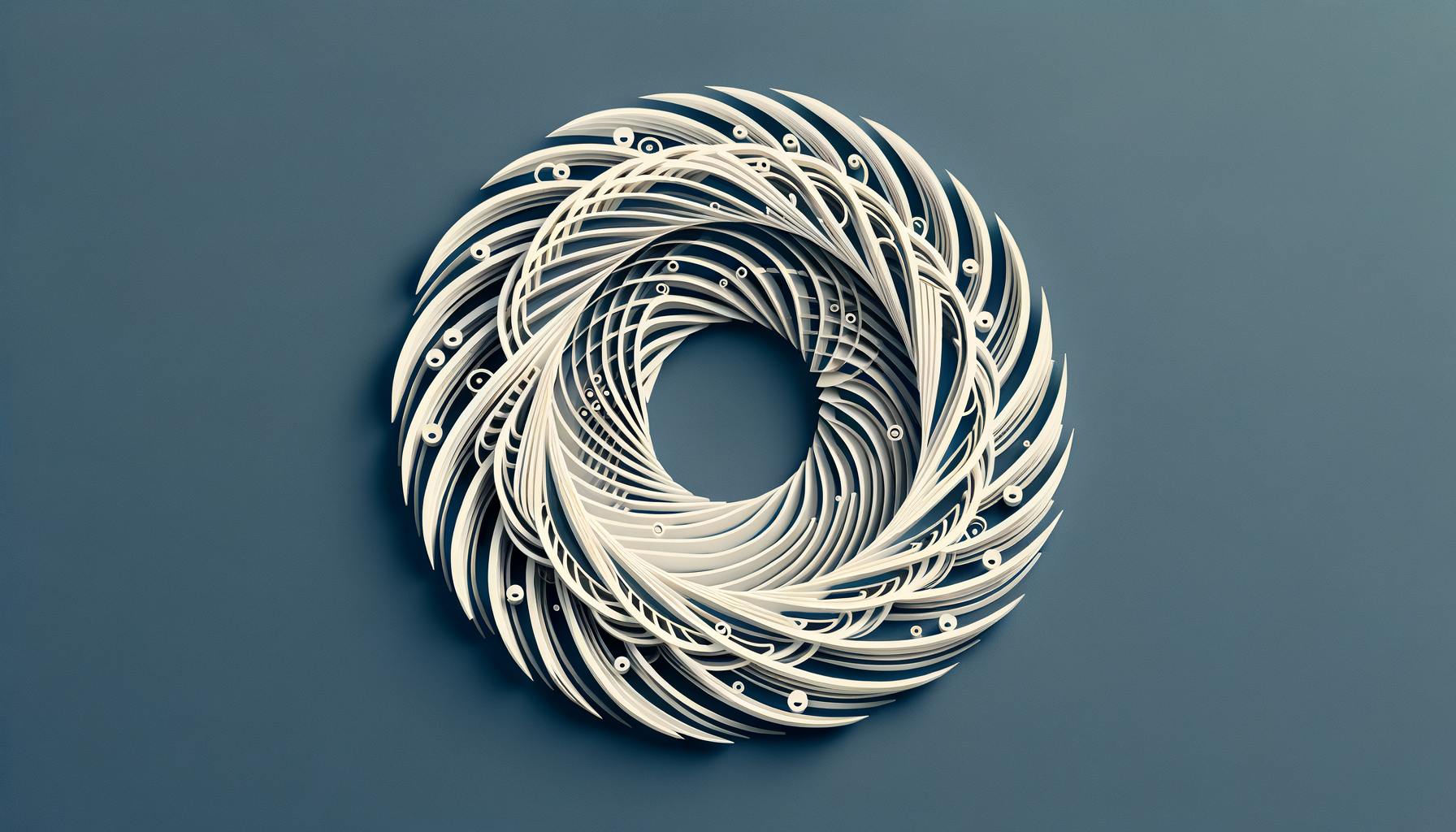They say everyone has a first love. For some, it’s a middle school crush, the kind of person who made you scribble Mrs. So-and-So into your math notebook. For others, it’s a fast car, an underdog sports team, or maybe a passion for baking sourdough from scratch (if you’re one of those pandemic bread-makers, we see you). For me, my first love was words.
It started early. I was a kid sitting on a stack of flour sacks in the back of my parents’ bakery in Hialeah, scribbling poems on pastry order forms and imagining the lives of the customers who drifted in for pastelitos and Cuban coffee. There was Señora Alarcón, who muttered about her sister’s lazy husband every Wednesday morning, and Mr. Domínguez, who always smelled faintly of cigar smoke and left a trail of crumbs wherever he went. The bakery wasn’t just a bakery—it was a stage, and every customer was part of the cast.
Back then, it didn’t click that storytelling was something you could actually do for a living. It was just my way of making sense of the world. But here I am, years later, trying to pin words down like butterflies in a display case, still hoping to understand this wild, brilliant mess of a world we live in.
So why do I write? Why do I keep writing even when the keyboard feels like it’s mocking me, even when life throws plot twists I didn’t ask for? Let me count the ways.
Writing Is My Therapy (But Cheaper Than a Shrink)
Life is chaos. Relationships are messy. Breakups suck. And let’s not even get started on family drama. But writing? Writing is like unpacking the chaos, letter by letter, sentence by sentence. It’s my way of sitting down with myself and playing the role of both the therapist and the patient.
When I was 13 and feeling stuck between cultures—too Cuban for some, too American for others—I wrote. When I couldn’t figure out why first dates always felt like auditions for a role I didn’t even want, I wrote. And when I broke up with my college girlfriend because she said I loved Kate Chopin’s The Awakening more than I loved her, I—you guessed it—wrote.
Journals, random sticky notes, even the back of a receipt—writing gives me a place to untangle life’s knots without fear of judgment. No one interrupts. No one plays devil’s advocate. It’s just me and my thoughts, duking it out on paper. And honestly, after a while, you start to notice patterns. Like why I sometimes confuse “working hard” with “working too much” or how I avoid saying “I need help” like it’s a four-letter word.
Hot tip: If you’ve ever felt like your brain is too full, try writing it out. Start with something small. Maybe, “I feel weird about that text I sent,” or “Why do I always pick the restaurant on date night?” Once the words start flowing, you might discover a clarity—or a punchline—you wouldn’t have found otherwise.
Words Connect Us (Even When We’re Awkward)
Picture this: You’re on a first date, all butterflies and sweaty palms. You stumble trying to order your drink, and the cute barista gives you a pity smile that only makes it worse. Desperate for a lifeline, you blurt out, “So…what’s your stance on pineapple on pizza?”
That’s the magic of words—they can turn an awkward pause into an inside joke or even a spark. Words are our bridge. They’re the thread that weaves connections, whether it’s with strangers, childhood friends, or potential soulmates.
Growing up in a bilingual household made me hyper-aware of how words—or the lack of them—create distance and connection. Take my abuela, for instance. Her English was limited, and my Spanish was, let’s generously say, “under construction,” but stories were where we found common ground. She’d tell me about the dances she used to go to back in Cuba, spinning her hands in the air like a mambo queen, and I’d listen, wide-eyed, before scribbling those details into my notebook later that night.
Today, when I write, I think about those moments. A well-timed joke shared at the dinner table. The way someone says, “Be safe,” when they mean, “I love you, but I’m too stubborn to say it outright.” Writing is my way of holding onto those connections, of telling people, “Hey, I see you. I get it.”
It’s an Adventure (Minus the Jet Lag)
Life is full of mysteries: Why does my mom still think I’m underdressed when I wear jeans? Will I ever get to the gym more than twice a month? Is love really about soulmates, or just about showing up for someone, day after day? Writing is how I explore these questions.
And let’s be real—writing gives me a front-row seat to lifestyles I’ll never actually live. Want to see inside the mind of a hopeless romantic who serenades strangers with a ukulele? Write it. Curious about what it'd feel like to ghost someone and then run into them at your favorite sandwich shop? Write it. Curious if cats have relationships as complicated as ours? Write that too.
To me, writing is like the world’s best travel deal: no TSA lines, no middle seats, just a passport to dive headfirst into all the love, heartbreak, and weird beauty of being alive. Plus, unlike actual adventures, I get to edit out the parts where I’m sweating or stumbling over my own feet.
Culture Is Fluid, and Stories Help Us Keep Up
As a Cuban American, there’s this constant push-pull inside me: loyalty to my roots versus curiosity about the broader world. It’s like being at a family domino game where everyone’s flipping tiles aggressively, and you’re not quite sure if you’re winning—or if winning even matters.
Writing is where I process all this. It’s where I honor the stories my parents told me about struggling to restart their lives in a new country without losing sight of who they were. And it’s also where I give myself permission to mix things up—to take their traditions, their bolero songs, their cafecito breaks, and blend them with my own rhythms.
Stories capture the messy evolution of culture, the way it spills over borders and bends to new shapes. Writing is me saying, “This is who I am,” while also allowing myself to figure that out as I go along. Spoiler alert: You don’t ever fully figure it out, and that’s okay.
Words Make the Hard Stuff Matter
I’ll be honest—writing isn’t always fun-and-games, Netflix-level binge-worthy material. Sometimes it’s sitting with the hard truths, with the sharp edges of life’s disappointments. It’s digging into the pain of breakups, the heartbreak of losing a loved one, the sting of realizing you’ve hurt someone you care about.
But here’s the thing: writing about the tough stuff doesn’t just help me make sense of it—it helps me honor it. It’s my way of saying, “This moment mattered.” That heartbreak? It taught me something. That rejection? It reminded me to stand a little taller next time. Those nights I stayed up doubting myself? They were proof I cared.
Writing is what keeps those moments from slipping through my fingers. It gives them weight. It doesn’t shrink them down or blow them out of proportion; it just makes them real.
Parting Words (Because Every Story Needs an Ending)
At the end of the day, I write because it’s how I connect—to myself, to my culture, and to others. Writing lets me work through the messy, awkward realities of being human, and still find a way to laugh at everything along the way. It's like a first date where you trip over your words but somehow still charm the heck out of the other person. Imperfect, relatable, and completely worth it.
So here’s my advice: write. Even if you don’t see yourself as a writer. Even if your words feel clumsy or too raw. Write when you feel stuck, when you feel inspired, or when you just need to tell someone—maybe yourself—that you’re here, you’re trying, and that matters.
Because trust me, it does. And if you’ve ever fallen in love, laughed at inside jokes, or wondered what it all means—well, you’ve already got a story worth telling.




















